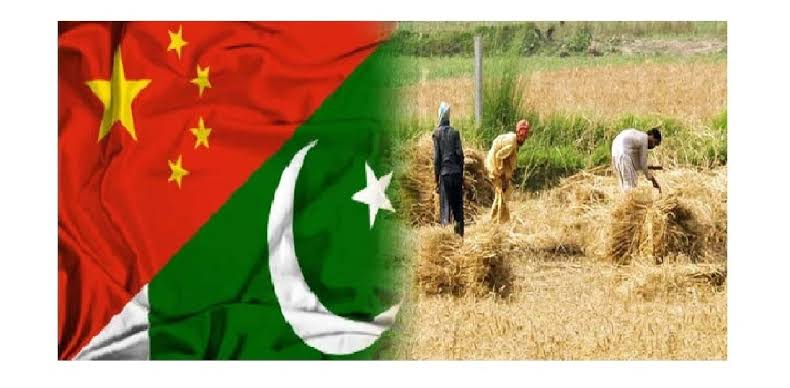ISLAMABAD, Pak-China collaboration to boost wheat output proved highly productive for enhancing per acare yield, Gwadar Pro reported on Thursday.
Since April, the harvest of wheat in Pakistan has reached its pinnacle. 75% wheat of Punjab has been reaped.
On the 8-hectare hybrid wheat trial in Pakpattan, Punjab, Mr. Abdul Rasheed held up a fresh bunch of recently harvested hybrid wheat with smile.
Abdul Rasheed is the R&D Director of an agricultural company based in Pakistan, which collaborates with Beijing Academy of Agricultural Sciences, to deliver hybrid wheat to Pakistan and to work on improving the productivity of wheat in the country.
“We have been working with Chinese companies to produce hybrid rice in Pakistan with amazing results. We hope our hybrid wheat will bring about the same revolution as hybrid rice,”Abdul Raheed told Gwadar Pro. While speaking about hybrid rice, he recalled monumental services of Dr. Yuan Longping, the father of hybrid rice in China, who contributed to massive output of rice production in Pakistan.
As one of the most important food crops, the status of wheat is self-evident for Pakistan with a population of more than 220 million. Rasheed and his instructor Zulfiqar Ali – a professor leading wheat breeding at University of Agriculture Faisalabad (UAF) – shared their insights based on years of wheat research experience.
Despite teaming up with China, being listed in the top 10 wheat creating nations, Pakistan’s average wheat yield still remains below the world average.
Around 55% of its wheat is developed in rainfed and saline sodic patched areas, with a yield of less than 2 tons/ha. The 45% in well irrigated areas has a yield of 4.5 tons/ha. China is a major wheat developing country with wheat yield in excess of 5 tons/ha on the planet.
“It is imperative to collaborate with China to increase wheat yield per unit area,” Prof Zulfiqar Ali further explained. “We can cooperate with China in germplasm exchange, hybrid wheat breeding, wheat added value and food processing plants to advance the wheat yield.
Sino-Pak cooperation can not only further develop wheat yield in Pakistan, but also can further improve wheat yield in African nations, etc.”
About 70% of Pakistani wheat tonnage is contributed by irrigated land that is based heavily on pumping ground water via fossil energy. This leads to higher costs in wheat production.
Prof. Zulfiqar Ali revealed that new development has been made with Chinese experts in wheat breeding for climate resilience especially for water saving, nutrition use efficiency, disease resistance, and hybrid breeding.
He suggested helping farmers obtain disease resistant wheat that utilizes less water. “The equipment involved in wheat processing should be economical in energy. In addition to that, better government policies are also necessary for stabilizing price,”he added.
Abdul Raheed is working on the seeds of conventional varieties. The yield of hybrid wheat has been increased by 20 percent in previous years and is expected to increase further. He hopes to bring this benefit to local farmers.

















